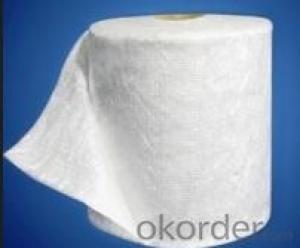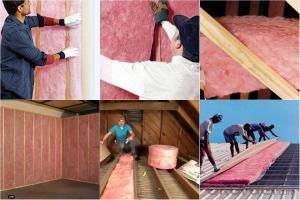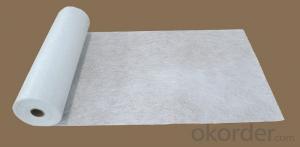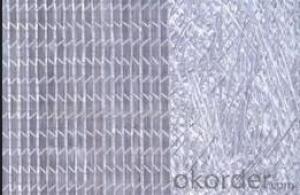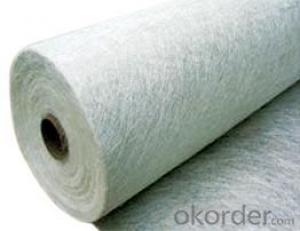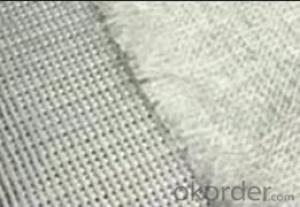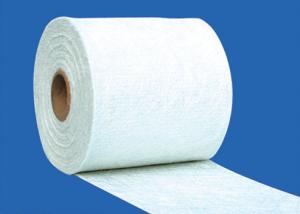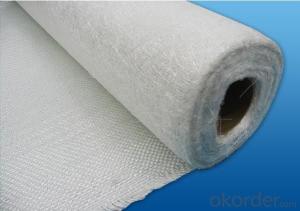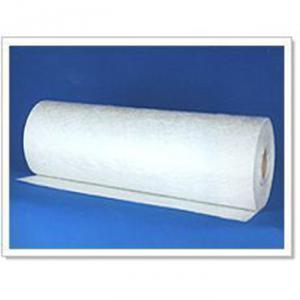Fiberglass Mat Tissue Woven Roving Combo Mat 900gsm, 1600mm
- Loading Port:
- Shanghai
- Payment Terms:
- TT OR LC
- Min Order Qty:
- 5000 m²
- Supply Capability:
- 30000 m²/month
OKorder Service Pledge
OKorder Financial Service
You Might Also Like
Process
Fiberglass stitch combo mat is the mat combining the woven roving and a even layer of chopped strand mat with polyester yarn.
Properties
• Fiber level unfolded without cross, high density, high utilizing rate.
• Multi-layer finished one time, decrease layer and enhance efficiency.
• Providing the product with multi-directional mechanical strength.
Applications
Mainly be used as reinforced materials in the composite material industry.
• Matrix: unsaturated polyester resin, vinyl ester resin, epoxy resin and phenolic resin etc.
• Craft: pultrusion, RTM, hand lay up, etc.
• Ultimate products: pultruded profiles, FRP body of boat, insulation board, automobile body.
Specifications
specifications | Fibre type | Wover roving | Chopped strand | Overall weight | Width |
(g/㎡) | (g/㎡) | (g/㎡) | (mm) | ||
EMK 600/300 | E-Glass | 600 | 300 | 900 | 1600/2400 |
EMK 600/380 | E-Glass | 600 | 380 | 980 | 1600/2400 |
EMK 600/450 | E-Glass | 600 | 450 | 1050 | 1600/2400 |
EMK 800/300 | E-Glass | 800 | 300 | 1100 | 1600/2400 |
EMK 800/380 | E-Glass | 800 | 380 | 1180 | 1600/2400 |
EMK 800/450 | E-Glass | 800 | 450 | 1250 | 1600/2400 |
Packaging: Wrapped in PVC and placed within a cardboard carton. | |||||
- Q: Can fiberglass mat tissue be used for repairing fiberglass structures?
- Fiberglass structures can be repaired using fiberglass mat tissue. This material is widely used in the construction and repair of fiberglass structures because of its versatility. Its purpose is to strengthen and reinforce damaged areas of the structure. To ensure a durable repair, the mat tissue is usually applied with resin, which bonds the fibers together. It is particularly effective for fixing cracks, holes, and other damages on fiberglass surfaces. In summary, fiberglass mat tissue is an outstanding option for repairing fiberglass structures due to its strength, flexibility, and ability to adapt to different shapes and sizes.
- Q: Does fiberglass mat tissue require any special handling precautions?
- Special handling precautions are required for fiberglass mat tissue. Mishandling fiberglass mat tissue can result in the release of small glass fibers into the air. Inhalation of these fibers can lead to skin irritation, eye irritation, and respiratory problems. Therefore, it is necessary to wear appropriate protective clothing, including gloves, long-sleeved shirts, pants, and safety goggles, when dealing with fiberglass mat tissue. Working in a well-ventilated area or using respiratory protection is recommended for confined spaces. Furthermore, the material should be handled gently to prevent the release of additional fibers. Proper disposal methods must be followed to avoid any potential harm. By following these precautions, the safety and well-being of individuals handling fiberglass mat tissue are ensured.
- Q: What are the different reinforcement orientations available for fiberglass mat tissue?
- There are several different reinforcement orientations available for fiberglass mat tissue, each serving a specific purpose in various applications. One common orientation is the unidirectional reinforcement, where the fibers are aligned in one direction. This orientation provides high strength and stiffness in the direction of alignment, making it suitable for applications that require resistance to tension or bending forces in a single direction. Another orientation is the bidirectional reinforcement, where the fibers are aligned in two perpendicular directions. This orientation provides equal strength and stiffness in both directions, making it ideal for applications that require resistance to both tension and compression forces. Bidirectional reinforcement is commonly used in structural components such as panels, pipes, and tanks. A third orientation is the randomly oriented reinforcement, where the fibers are distributed in a random manner. This orientation offers isotropic properties, meaning it provides similar strength and stiffness in all directions. Random reinforcement is often used in applications that require uniform strength and flexibility, such as automotive parts, boat hulls, and sporting goods. Additionally, there are also hybrid reinforcement orientations available, which combine different types of fibers or orientations to achieve specific performance requirements. These hybrid reinforcements can offer a combination of strength, stiffness, flexibility, and other desired properties, making them suitable for a wide range of applications. Overall, the choice of reinforcement orientation for fiberglass mat tissue depends on the specific requirements of the application, including the desired mechanical properties, the direction of forces to be resisted, and other performance considerations.
- Q: Is fiberglass mat tissue compatible with vacuum infusion processes?
- Yes, fiberglass mat tissue is compatible with vacuum infusion processes. Fiberglass mat tissue is often used as a reinforcement material in composite manufacturing processes, including vacuum infusion. The vacuum infusion process involves the use of a vacuum to remove air and ensure complete resin impregnation of the fiberglass mat tissue. The porous nature of the fiberglass mat tissue allows the resin to flow through and saturate the fibers, resulting in a strong and durable composite part. This makes fiberglass mat tissue an ideal choice for vacuum infusion processes.
- Q: How does fiberglass mat tissue perform in terms of moisture resistance?
- Fiberglass mat tissue performs excellently in terms of moisture resistance. Its dense structure and composition make it highly resistant to water absorption, preventing moisture from seeping through and causing damage to the underlying material. This property makes fiberglass mat tissue an ideal choice for various applications where moisture protection is crucial, such as in the construction of roofs, walls, and insulation.
- Q: What are the different types of resins compatible with fiberglass mat tissue?
- There are several different types of resins that are compatible with fiberglass mat tissue. These resins include polyester resin, epoxy resin, vinyl ester resin, and polyurethane resin. Polyester resin is one of the most commonly used resins in fiberglass mat applications. It is cost-effective and has good mechanical properties, making it suitable for a wide range of applications. Polyester resin is also easy to work with and provides good resistance to water and chemicals. Epoxy resin is another popular choice for fiberglass mat tissue. It offers excellent mechanical properties, high strength, and good resistance to chemicals and moisture. Epoxy resin is often used in applications that require superior strength and durability, such as aerospace and marine industries. Vinyl ester resin is a hybrid between polyester and epoxy resins. It combines the best properties of both resins, offering high strength, good corrosion resistance, and excellent durability. Vinyl ester resin is commonly used in applications where high chemical resistance and superior mechanical properties are required. Polyurethane resin is a versatile resin that can be used with fiberglass mat tissue. It offers excellent flexibility, impact resistance, and adhesion properties. Polyurethane resin is often used in applications that require high flexibility and resistance to abrasion, such as automotive parts and sporting goods. Overall, the choice of resin depends on the specific requirements of the application, including mechanical properties, chemical resistance, flexibility, and cost.
- Q: What are the different surface textures available for fiberglass mat tissue?
- Some of the different surface textures available for fiberglass mat tissue include smooth, coarse, textured, embossed, and patterned.
- Q: Is fiberglass mat tissue suitable for automotive interiors?
- Automotive interiors can benefit from the use of fiberglass mat tissue. This versatile material is widely utilized in many industries, including automotive manufacturing. It possesses several advantages that make it appropriate for car interiors. To begin with, fiberglass mat tissue offers excellent insulation capabilities. It effectively reduces noise, vibration, and harshness (NVH) levels inside the vehicle cabin. This greatly enhances passenger comfort and the overall driving experience. Moreover, fiberglass mat tissue is lightweight and flexible, making it easy to install in different areas of the car's interior. It can be molded and shaped to fit various components like door panels, headliners, trunk liners, and floor carpets. Its flexibility also allows for seamless integration with other materials, such as sound-deadening substances, to further improve insulation and minimize vibrations. Additionally, fiberglass mat tissue exhibits resistance to heat, moisture, and chemicals commonly found in automotive environments. This renders it a durable and long-lasting material capable of withstanding the unique conditions inside a vehicle. It also resists the growth of mold and mildew, ensuring a clean and hygienic interior. Furthermore, fiberglass mat tissue can be easily coated or laminated with other materials to enhance its aesthetic appeal. It can be finished with various fabrics, vinyl, or leather to match the desired interior design and provide a luxurious feel. In conclusion, fiberglass mat tissue is a suitable material for automotive interiors due to its insulation properties, lightweight and flexible nature, durability, resistance to heat and moisture, and potential for aesthetic enhancements. Its utilization contributes to the creation of a comfortable, quiet, and visually pleasing cabin space for vehicle occupants.
- Q: What are the different methods of bonding fiberglass mat tissue to other materials?
- There are various ways to bond fiberglass mat tissue to other materials, each with its own advantages and considerations. Some commonly used methods are as follows: 1. Mechanical Bonding: This technique involves physically interlocking the fiberglass mat tissue with the other material. It can be achieved through stitching, stapling, or using mechanical fasteners like screws or nails. While mechanical bonding provides a strong and durable connection, it may require additional hardware and can be time-consuming. 2. Adhesive Bonding: Adhesive bonding is a popular method that utilizes adhesives or glue to join the fiberglass mat tissue with the other material. This method offers flexibility, as there are different types of adhesives available for various applications. It is important to select an adhesive that is compatible with both the fiberglass mat tissue and the other material. Proper surface preparation and application techniques are crucial for achieving a strong bond. 3. Resin Infusion: Resin infusion involves infusing a liquid resin into the fiberglass mat tissue and other materials, resulting in a strong bond when cured. This method is commonly used in manufacturing composite products, as it allows for a seamless and uniform bond. Vacuum bagging or resin infusion techniques are typically employed to ensure proper resin distribution and consolidation. 4. Thermal Bonding: Thermal bonding employs heat to bond the fiberglass mat tissue to another material. This technique is particularly suitable for thermoplastic materials, as they can be softened and fused together with heat. Heat welding or ultrasonic welding are commonly used techniques for thermal bonding. Care must be taken to prevent damage or degradation of the fiberglass mat tissue during the bonding process. 5. Fusion Bonding: Fusion bonding is a method where the fiberglass mat tissue and the other material are heated to a molten state and then brought into contact to form a bond. This technique is commonly used in the manufacturing of thermosetting plastics or joining thermoplastic materials. Fusion bonding can provide a strong and seamless bond, but it requires precise control of temperature and pressure to ensure proper bonding without causing damage. To summarize, the various methods of bonding fiberglass mat tissue to other materials include mechanical bonding, adhesive bonding, resin infusion, thermal bonding, and fusion bonding. The choice of bonding method depends on factors such as the materials being bonded, the desired strength and durability, and the specific application requirements.
- Q: Is fiberglass mat tissue suitable for automotive applications?
- Yes, fiberglass mat tissue is suitable for automotive applications. Fiberglass mat tissue is a versatile material that offers numerous benefits when used in automotive applications. It provides excellent strength and durability, which is essential for automotive parts that need to withstand harsh conditions and heavy usage. Fiberglass mat tissue also has good thermal and electrical insulation properties, making it suitable for applications where temperature resistance and electrical insulation are required. Additionally, fiberglass mat tissue is lightweight, which can help improve fuel efficiency and overall vehicle performance. It is also easy to mold and shape, allowing manufacturers to create complex automotive parts with precision. Furthermore, fiberglass mat tissue is resistant to corrosion, chemicals, and UV radiation, ensuring the longevity and reliability of automotive components. Overall, the unique properties of fiberglass mat tissue make it an ideal choice for various automotive applications, including but not limited to body panels, interior components, structural reinforcements, and sound insulation. Its strength, durability, insulation properties, lightweight nature, and resistance to corrosion and chemicals make it a reliable and cost-effective material for the automotive industry.
Send your message to us
Fiberglass Mat Tissue Woven Roving Combo Mat 900gsm, 1600mm
- Loading Port:
- Shanghai
- Payment Terms:
- TT OR LC
- Min Order Qty:
- 5000 m²
- Supply Capability:
- 30000 m²/month
OKorder Service Pledge
OKorder Financial Service
Similar products
Hot products
Hot Searches
Related keywords
